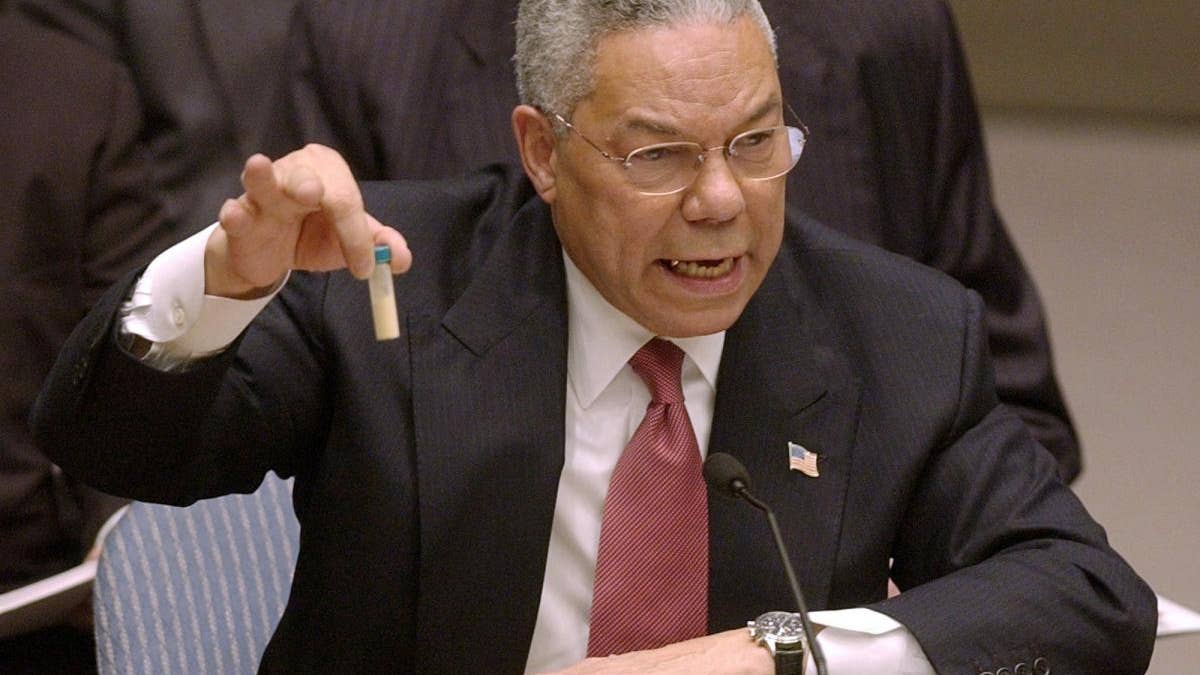
Former Secretary of State Colin Powell announced his support for the Obama Administration's nuclear deal with Iran. (AP)
Eight years after the U.S. invasion of Iraq, Colin Powell wants to know why the U.S. struck out with, "Curveball," the name given to the country's critical source of information about alleged Iraqi WMDs.
"It has been known for several years that the source called Curveball was totally unreliable," Powell told the UK's Guardian newspaper about that primary source of American intel, an Iraqi defector named Rafid Ahmed Alwan al-Janabi. "The question should be put to the CIA and the DIA as to why this wasn't known before the false information was put into the NIE sent to Congress, the president's state of the union address and my... presentation to the UN."
The well-respected Powell's 2003 address to the United Nations laid out the American case against Iraq on a world stage, and his cooperation was seen at the time as a source of credibility for the Bush administration. However, upon learning that his presentation featured fabricated information provided by the discredited source, Powell said the speech has left a "blot," on his decades-long record.
Donald Rumsfeld, who was Defense Secretary at the time, told Fox News Radio that the decision to go to war was not based on that alone. "It certainly was just one piece of hundreds of scraps of information they brought together, " he said.
Someone on General Powell's staff tells FOX News that her boss is not demanding an investigation, since there have already been investigations, like the 2005, 600-page report commissioned by Senator Charles Robb and federal appellate court Judge Laurence Silberman. Rather, the general simply wants the intelligence community to explain how incorrect information from, "Curveball," made it all the way up the chain of command, to the president, without being flagged as fraudulent.












































